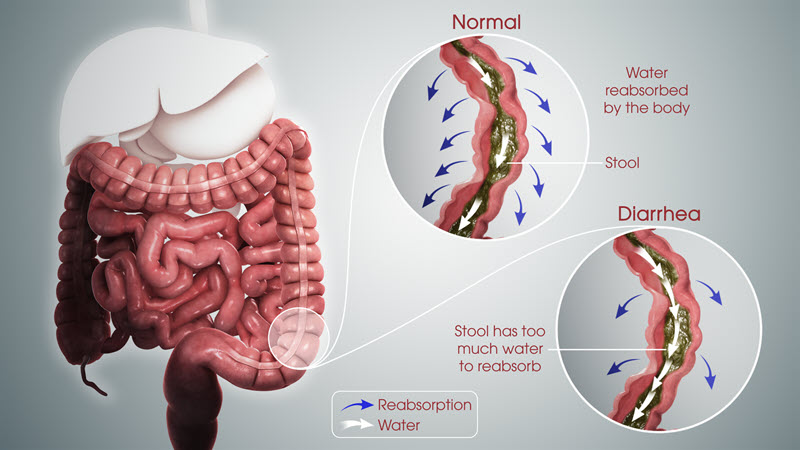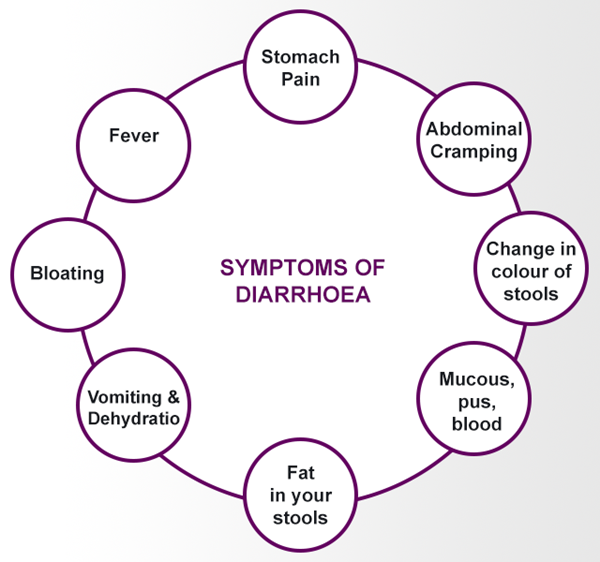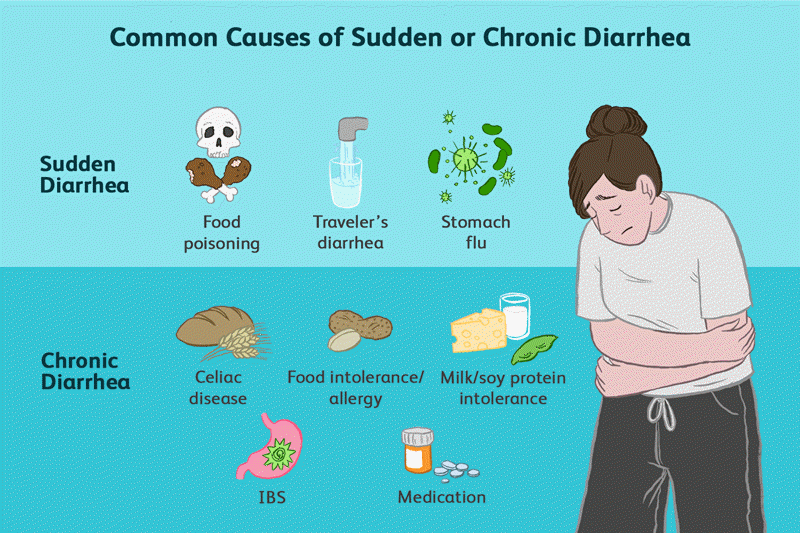This discussion includes the following information related to Diarrhea:
- Diarrhea
- Signs and Symptoms of Diarrhea
- Causes of Diarrhea
- Tests and Diagnosis for Diarrhea
- Treatment and Drugs for Diarrhea
Diarrhea Definition

Diarrhea describes loose, watery stools that occur more frequently than usual. Diarrhea is something everyone experiences. Diarrhea often means more-frequent trips to the toilet and a greater volume of stool.
In most cases, diarrhea signs and symptoms usually last a couple of days. But sometimes diarrhea can last for weeks. In these situations, diarrhea can be a sign of a serious disorder, such as inflammatory bowel disease, or a less serious condition, such as irritable bowel syndrome.
Signs and Symptoms of Diarrhea

Signs and symptoms associated with diarrhea may include:
- Frequent, loose, watery stools
- Abdominal cramps
- Abdominal pain
- Fever
- Blood in the stool
- Bloating
EMERGENCY If you’re an adult, see your doctor if: In children, particularly young children, diarrhea can quickly lead to dehydration. Call your doctor if your child’s diarrhea doesn’t improve within 24 hours or if your baby:
Causes of Diarrhea

Diarrhea occurs when the food and fluids you ingest pass too quickly or in too large an amount — or both — through your colon. Normally, your colon absorbs liquids from the food you eat, leaving a semisolid stool. But if the liquids from the foods you eat aren’t absorbed, the result is a watery bowel movement.
A number of diseases and conditions can cause diarrhea. Common causes of diarrhea include:
- Viruses: Viruses that can cause diarrhea include Norwalk virus, cytomegalovirus and viral hepatitis. Rotavirus is a common cause of acute childhood diarrhea.
- Bacteria and parasites: Contaminated food or water can transmit bacteria and parasites to your body. Parasites such as Giardia lamblia and cryptosporidium can cause diarrhea. Common bacterial causes of diarrhea include campylobacter, salmonella, shigella and Escherichia coli. Diarrhea caused by bacteria and parasites can be common when traveling in developing countries and is often called traveler’s diarrhea.
- Medications: Many medications can cause diarrhea. The most common are antibiotics. Antibiotics destroy both good and bad bacteria, which can disturb the natural balance of bacteria in your intestines. This disturbance sometimes leads to an infection with bacteria called Clostridium difficile, which also can cause diarrhea.
- Lactose intolerance: Lactose is a sugar found in milk and other dairy products. Many people have difficulty digesting lactose and experience diarrhea after eating dairy products.
- Your body makes an enzyme that helps digest lactose, but for most people, the levels of this enzyme drop off rapidly after childhood. This causes an increased risk of lactose intolerance as you age.
- Fructose: Fructose, a sugar found naturally in fruits and honey and added as a sweetener to some beverages, can cause diarrhea in people who have trouble digesting it.
- Artificial sweeteners: Sorbitol and mannitol, artificial sweeteners found in chewing gum and other sugar-free products, can cause diarrhea in some otherwise healthy people.
- Surgery: Some people may experience diarrhea after undergoing abdominal surgery or gallbladder removal surgery.
- Other digestive disorders: Chronic diarrhea has a number of other causes, such as Crohn’s disease, ulcerative colitis, celiac disease, microscopic colitis and irritable bowel syndrome.



